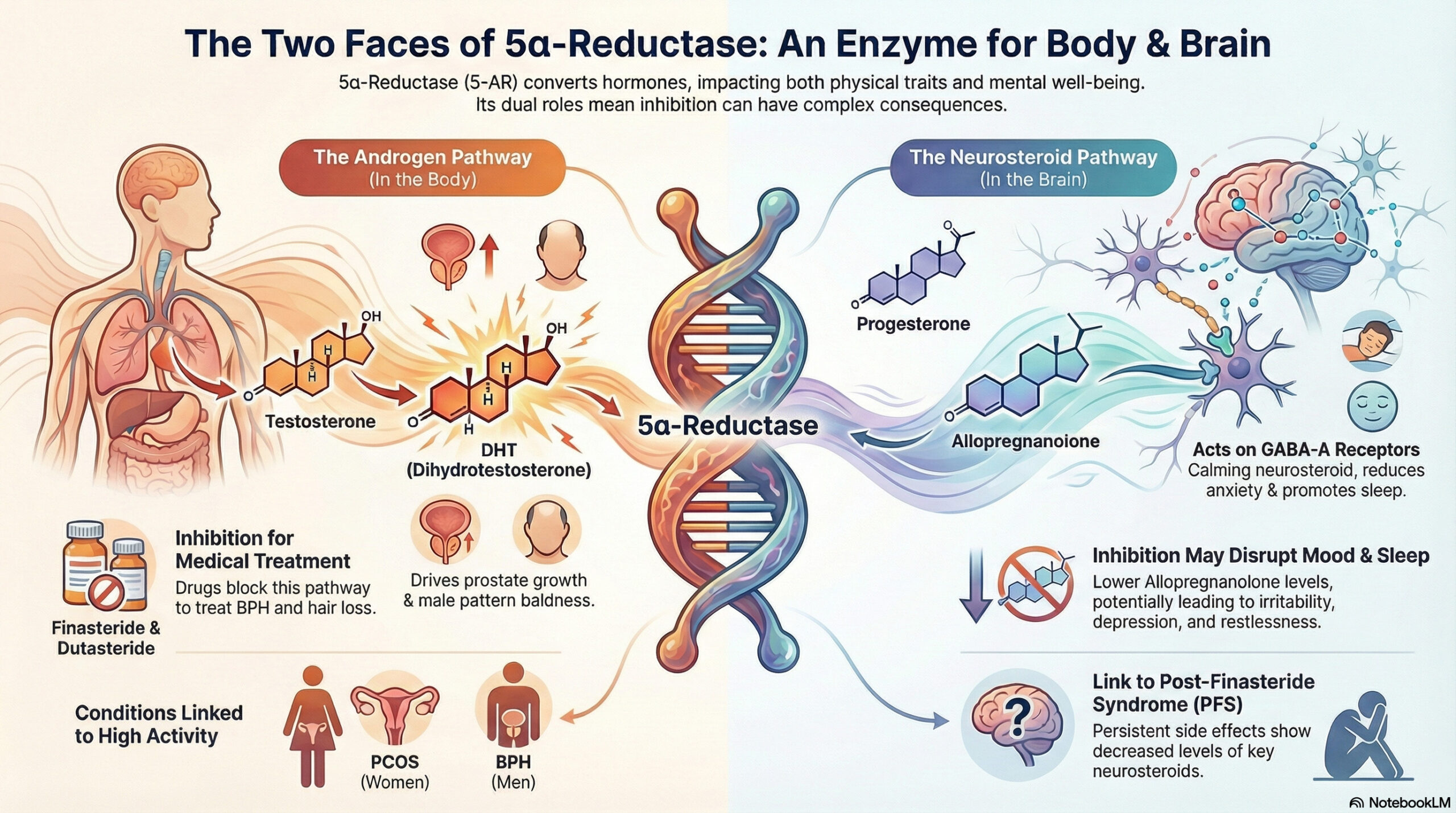Sex hormone–binding globulin (SHBG) is a protein made mainly in the liver. It binds strongly to key sex hormones like testosterone, dihydrotestosterone (DHT), and estradiol. By doing so, SHBG controls how much of these hormones stay “free” (unbound) and biologically active in the body. Think of SHBG as a gatekeeper: it influences how much hormone is available to tissues in both men and women.
 Carol Petersen
Carol Petersen
Women and the Crisis in Sex Hormones
“Women and the Crisis in Sex Hormones” by Barbara Seaman is a bold 1987 critique of synthetic hormone therapies, including the birth control pill and menopause treatments, exposing their risks and the medical industry’s profit-driven oversights. Book Overview Seaman warns of dangers like blood clots, strokes, heart attacks, and cancers from high-dose estrogens, urging women … Read more
5β-Reductase (AKR1D1): Hormone Off-Switch & Digestion Hero
Imagine your hormones as messengers racing through your body, delivering important signals. But what happens when they stick around too long? Enter 5β-reductase, a hardworking liver enzyme that acts like a gentle “off-switch,” calming down hormones like progesterone, testosterone, and cortisol while powering up the bile that helps you digest fats. This unsung hero keeps your hormone levels balanced and your digestion smooth—yet most people have never heard of it.[journals.plos]
Everything Estrogen Made Easy – A Must-Read If You’re Battling Estrogen Dominance
If you’re stuck in that frustrating loop of “normal” thyroid labs, constant low energy, digestive issues, mood swings, or just feeling like your metabolism is in slow motion—and you’ve got a sneaking suspicion estrogen is playing a bigger role than anyone admits—then Everything Estrogen Made Easy by DanM@CowsEatGrass is hands-down one of the best resources … Read more
Why DHT Blockers Cause Insomnia & Anxiety: How Progesterone Solves the 5-Alpha Paradox
In the pursuit of optimized health, hormonal balance, and aesthetic preservation, the enzyme 5-alpha reductase (5-AR) often plays the role of the villain. It is the biological catalyst responsible for converting testosterone into dihydrotestosterone (DHT), the potent androgen blamed for male pattern baldness, acne, and prostate enlargement. Consequently, a massive market has emerged for “DHT blockers”—ranging from pharmaceutical heavyweights like finasteride to natural pantry staples like pumpkin seeds, zinc, and saw palmetto.



